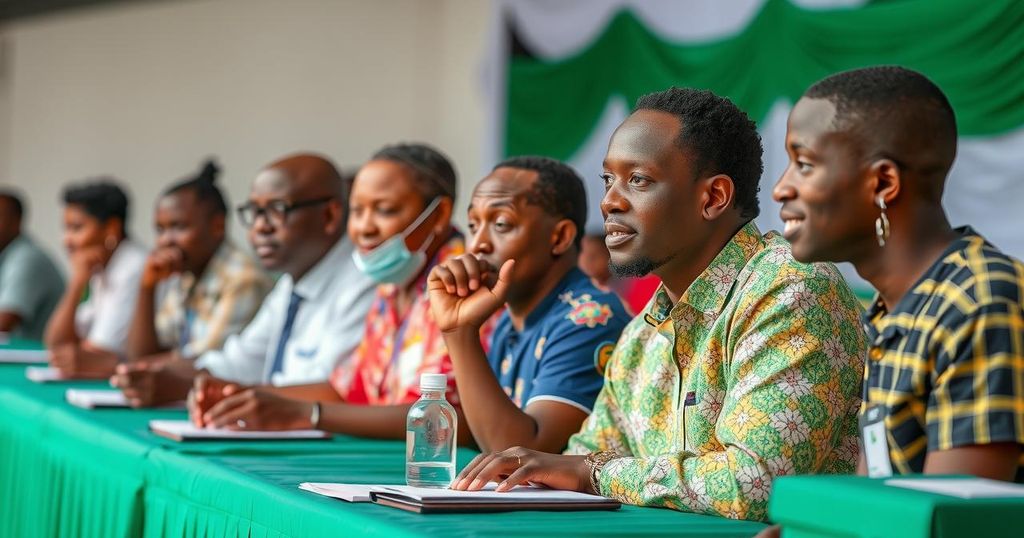Voters in Comoros are electing a new parliament amidst ongoing tensions following President Azali Assoumani’s controversial re-election. The electoral process includes about 338,000 registered voters, while opposition parties have encouraged a boycott. Assoumani, in power since 1999, faces allegations of authoritarian practices and is suspected of preparing his son for succession.
Voters in Comoros have commenced the process of electing members to the country’s 33-seat parliament following President Azali Assoumani’s recent re-election, which has faced allegations of extensive electoral misconduct by opposition factions. The elections, marking a year since Assoumani’s controversial win, see approximately 338,000 registered voters participating. Despite the call for a boycott by certain opposition groups, such as Juwa, many candidates have chosen to compete, adding to the complexity of the electoral landscape. Assoumani has governed since seizing power in a coup in 1999 and has continually faced accusations of authoritarian leadership, especially regarding the implications of grooming his son, Nour El-Fath, for future leadership roles.
The political climate in Comoros has been fraught with tension, particularly following the accusations against President Azali Assoumani regarding the integrity of last year’s elections. The composition of the parliament plays a crucial role in shaping policy and governance in the Indian Ocean archipelago, and the current electoral process is seen as a significant moment for both the ruling party and the opposition. The legacy of coups and alleged authoritarianism under Assoumani has shaped public perception and the overall political atmosphere, affecting voter sentiment and opposition strategies.
As Comoros proceeds with its parliamentary elections, the implications of this vote extend beyond mere political representation; they reflect the nation’s ongoing struggle for democratic integrity amid allegations of authoritarian rule. The participation of opposition parties in the electoral process, despite calls for a boycott, signifies a complex and evolving political scenario where the future direction of the country hangs in the balance. Observers eagerly await the election results, expected by Friday, to ascertain the current state of Comorian politics.
Original Source: www.armidaleexpress.com.au






